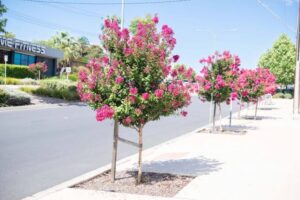storyteller, and artist whose life’s work significantly impacted Indigenous rights and cultural preservation. Born on November 9, 1931, in Rockhampton, Queensland, she was of Birri Gubba descent and spent her early years in the Dawson Valley. Her upbringing was rich in cultural narratives, which later fueled her passion for storytelling and advocacy.
Early Life and Education
maureen watson Queensland, Watson left school at 13 due to a horse-riding injury. Despite this setback, she developed a deep connection to her heritage and community. In 1970, she moved to Brisbane with her five sons and began an arts degree at the University of Queensland, immersing herself in the burgeoning Aboriginal rights movement.
Activism and Advocacy
Watson was at the forefront of Indigenous activism, notably participating in the 1982 protests during the Brisbane Commonwealth Games, advocating for the repeal of the Aborigines Act 1971. Her commitment to justice and equality was unwavering, leading to multiple arrests during these demonstrations
Cultural Contributions
A gifted storyteller, Watson utilized her talents to promote Aboriginal culture. She co-founded the Aboriginal People’s Gallery in Redfern, Sydney, providing a platform for Indigenous artists. Additionally, she was instrumental in establishing Radio Redfern, a community radio station that became a vital voice for Aboriginal people in Sydney.
Literary and Artistic Works
Watson’s creative endeavors included poetry, children’s literature, and theater. Her works often highlighted the resilience of Aboriginal culture and challenged societal stereotypes. Notable publications include “Black Reflections” (1982) and the children’s book “Kaiyu’s Waiting: An Aboriginal Story” (1984).
Awards and Recognition
Throughout her career, Watson received numerous accolades, including the United Nations Association Global Leadership Prize and the Australia Council’s Red Ochre Award, honoring her contributions to cross-cultural understanding and the arts.
Legacy
maureen watson legacy is one of inspiration and empowerment. Her life’s work continues to influence generations, fostering a deeper appreciation for Aboriginal culture and the ongoing pursuit of social justice.
Frequently Asked Questions
Who was Maureen Watson?
Maureen Watson was an Australian Aboriginal activist, storyteller, and artist known for her contributions to Indigenous rights and cultural preservation.
What were Maureen Watson’s notable achievements?
She co-founded the Aboriginal People’s Gallery and Radio Redfern, published influential literary works, and received awards like the United Nations Association Global Leadership Prize.
How did Maureen Watson contribute to Aboriginal culture?
Through storytelling, literature, and activism, she promoted and preserved Aboriginal culture, providing platforms for Indigenous voices.
What is the significance of Radio Redfern?
Established with Watson’s involvement, Radio Redfern became a crucial medium for Aboriginal voices in Sydney, promoting Indigenous culture and issues.
What awards did Maureen Watson receive?
She was honored with the United Nations Association Global Leadership Prize and the Australia Council’s Red Ochre Award for her contributions to cross-cultural understanding and the arts.
How is Maureen Watson remembered today?
Her legacy lives on through her literary works, contributions to Indigenous media, and her enduring impact on Aboriginal rights and cultural preservation.
Maureen Watson’s life exemplifies dedication to culture, community, and justice, leaving an indelible mark on Australia’s social and cultural landscape.




